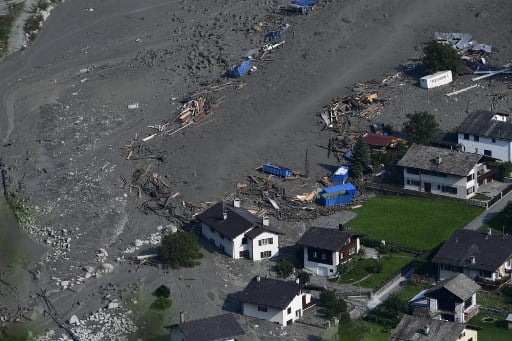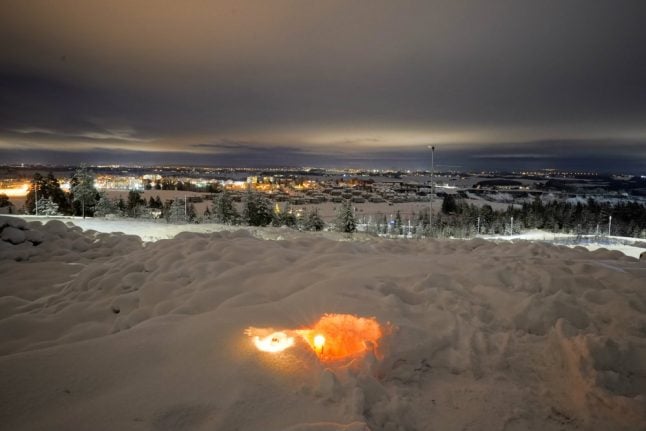#frana a #Bondo – risveglio da sfollati e da isolati dopo la colata … piove ancora e il Cengalo scarica #ultimora @RSIonline #Bregaglia pic.twitter.com/oxt2BZeitv
— Davide Paggi (@paggidavide) September 1, 2017
LANDSLIDE
Storm sparks another big landslide, Bondo hit again
Another major landslide sent rocks and mud towards the beleaguered village of Bondo in the canton of Graubünden on Thursday night, village authorities said.
Published: 1 September 2017 09:13 CEST

Photo: Miguel Medina/AFP
A violent thunderstorm in the area caused instable rock to detach from the Piz Cengalo mountain, sparking a wave of mud, rock and debris to flow towards Bondo in a near-repeat of the events of August 23rd when three million cubic metres of rock detached from the same mountainside.
Police spokesman Roman Rüegg told news agency ATS that the size of the latest landslide could not yet be measured, but it was significant.
The authorities had feared another, saying that a further 500,000 to one million cubic metres of rock remained prone to fall and could be destabilized by the bad weather.
READ ALSO: 'No one expected this kind of catastrophe'
The latest landslip once again filled Bondo’s rockfall retention reservoir, which had been partially emptied after it was overwhelmed by the first landslide, said the Bregaglia commune in a statement.
Streets that were spared during the first landslide were hit this time. The mass of sludge also covered the riverbed and two access roads, cutting off the village.
No one was in Bondo at the time, since the village had remained evacuated following the first rockfall last week. However residents and hotel guests in the neighbouring village of Spino were evacuated and two elderly people had to be rescued by Rega helicopter.
Houses in Spino and the villages of Promontogno and Sotoponte were damaged, with some completely destroyed, added ATS.
No one was injured.
Authorities in the area have said that the clean up and reconstruction of Bondo could take several years, with the damage estimated to be several million francs.
Mayor of Bondo Anna Giacometti said the authorities had already released 800,000 francs in aid.
And on Thursday charity Chaîne de Bonheur/Glückskette launched an appeal to help the village, pledging an initial 260,000 francs to villagers and small businesses in the area, said ATS.
Url copied to clipboard!


 Please whitelist us to continue reading.
Please whitelist us to continue reading.